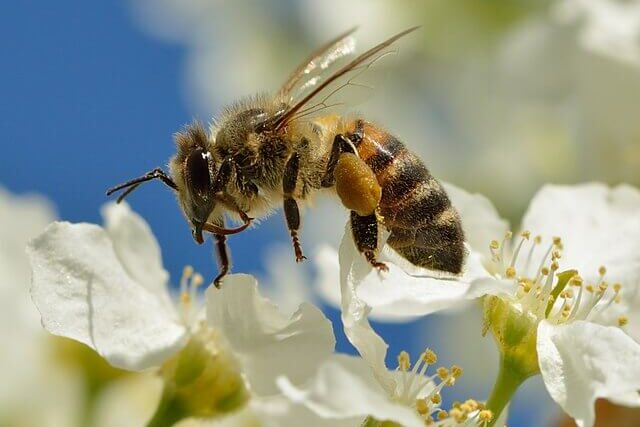
Won’t somebody please think about the insects?!
Protected areas now cover nearly 17% of the world’s land, or 22.5 million square kilometres. In order to maintain the health of natural ecosystems and the species and functions they support, nations have enacted laws to protect these parcels of land—or, in some cases, aquatic areas. Certain species, like the Asian elephant, clearly benefitted from the establishment of protected areas.
However, protected areas all over the world, at least as of 2019, are not taking into account some of the world’s tiniest, weakest, and most fundamentally disgusting inhabitants: insects. New research sheds light on this issue, indicating that the dedicated conservation areas currently in place do not adequately protect more than three-quarters of the known insect species.
One of the authors of the paper, conservation biologist Shawan Chowdhury, believes that there are likely many more species of creepy crawlies that we do not know about and that are likely also being failed by existing protected areas.
The Global Biodiversity Information Facility, a large repository of information about where species are found, provided the research team with data from approximately 100,000 insect species when the study began in 2019. They layered this data on top of a map that showed the locations and sizes of all protected areas worldwide in 2019. According to Chowdhury, “It took a while”.
The team then used an older method to figure out how much of each species’ range needed to be protected for it to be considered sufficiently protected. For instance, their range must be completely protected when it is less than 1,000 square kilometres in size. 10% of the range should be protected when it is 250,000 square kilometres, etc.
Chowdhury and his team discovered that 76% of the species they studied needed more protection. The team’s research also revealed that 1,876 species from 225 families did not belong to any of the protected areas that were in place at the time, according to the paper.
In the future, countries planning protected areas should take into account the well-being of these chitinous, gnarly, and frequently significant species. The first part of this was said by Chowdhury; The final section was editorial.)
Regardless, there is a lot to learn about the conservation of insect species. Although insects don’t have the charisma of, say, some species of large cats, they can play a variety of important roles in their respective ecosystems, such as being pollinators, decomposers, or predators of smaller species. However, despite the fact that Chowdhury’s research reveals that insects account for 80% of all animal species, only 8% of the species listed on the IUCN Red List fall under this category.
The fact that insects are surrounded by a lot of unknowns is not helpful. Only one million of the 10 million insect species that exist in the world have been characterised. Chowdhury said that the Global North has more information about species than the Global South.
“So, we actually know nothing about insects globally,” Chowdhury said.
——————————————————————————
At Natural World Fund, we are passionate about stopping the decline in our wildlife.
The declines in our wildlife is shocking and frightening. Without much more support, many of the animals we know and love will continue in their declines towards extinction.
When you help to restore a patch of degraded land through rewilding to forests, meadows, or wetlands, you have a massive impact on the biodiversity at a local level. You give animals a home and food that they otherwise would not have had, and it has a positive snowball effect for the food chain.
We are convinced that this is much better for the UK than growing lots of fast-growing coniferous trees, solely to remove carbon, that don’t actually help our animals to thrive.
This is why we stand for restoring nature in the UK through responsible rewilding. For us, it is the right thing to do. Let’s do what’s right for nature!
Support our work today at https://naturalworldfund.com/ and join in the solution!

